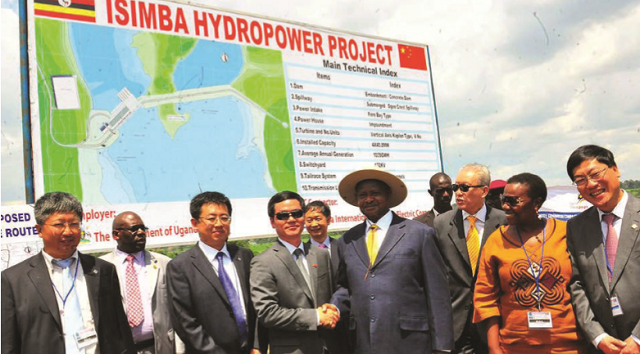
The new UEGCL managers last year took charge of the two dam projects after a year-long fight for control with then-Ministry of Energy PS, Kabagambe Kaliisa, whom they accused of excesses that appeared to threaten the projects.
The whistleblower dossier that has surfaced is titled “Request for urgent intervention in UEGCL mess” and was addressed to the Speaker of parliament on November 17, 2017.
At the centre of the accusations in the report are Stephen Isabalija, then-UEGCL board chair and his entire board, Harrison Mutikanga, the chief executive officer, and Joshua Karamagi, the chief finance officer. Mutikanga and Karamaji were hired by the Isabalija-led board.
The dossier fingers the company over alleged inaccurate audited financial statements.
“Two sets of accounts were produced,” the dossier reads in part, “one with all the audit findings (detailed Management Letter), and the abridged one that contained only what the Board and Management wanted the Auditor General to see. Annex 11 shows excerpts of the confidential Management Letter that is strictly guarded by UEGCL Management. It is good to compare with what finally came out in the published financial statements.”
Officials at UEGCL also stand accused of abuse of funds. For instance, the dossier says the company spends excessively on consultants, some of which it procures irregularly. Some of the consultants listed include; InfraTech, $35 million, AF Consultants, $2.5million, and SMEC Consultants, $ 4.0 million.
The dossier also notes that UEGCL irregularly procured the internal audit function to a private company—M/s AH Consulting, which is paid Shs40 million. On top of this, AH Consulting was also sponsored for training at KENGEN, which cost the company Shs40 million. The previous internal auditor, the whistleblower says, was being paid Shs7 million.
The dossier notes that UEGCL hired two firms—Statewide and Britam—and the cost of insurance shot from Shs100 million in 2014 to Shs600 million the following year without any significant addition to assets.
Apart from this, it notes, top officials flouted procurement rules while acquiring the UEGCL building in Kamwokya. Apparently, the company borrowed some Shs8.6 billion at an interest rate of 15 percent yet it could have borrowed from the fixed deposit account at 10 percent.
The funds on that account, which were the security for the loan, were then used to repay the loan. The dossier also claims that the building was Shs600 million higher than the actual cost because of the dollar appreciation rate at the time.
The dossier also accuses UEGCL officials for fake accounting. It also alleges that the company uses project funds for non-project activities like foreign travel for board members and the CEO. It says seven board members travelled to Canada on company cost of Shs130 million in air tickets plus $70,000 (Approx. Shs245 million) in allowances. It also accuses Isabalija of taking private trips to the U.S. at the expense of the company.
Between Sept.2015 and Sept. 2016, the dossier notes, the board had paid itself Shs1 billion in form of travel and sitting allowances.
The dossier also accuses the company for excessive expenditure on office partitioning—apparently, Shs1.2 billion.
The dossier notes that there has been a drastic fall of cash held on the fixed deposit account from Shs. 12 billion to about Shs. 4 billion in a space of two years.
Isabalija was appointed on UEGCL’s board in Nov.2013, then later became its chairman replacing Prof. Tickodri Togboa. President Yoweri Museveni appointed him the Energy Ministry PS early in November last year, the same month the dossier pinning him was authored.
The dossier noted that since he was appointed to the power generator’s board in November 2013, Isabalija, targeted direct and unfettered access to company funds and to get it, he started by eliminating all those who were perceived as roadblocks.
 The Independent Uganda: You get the Truth we Pay the Price
The Independent Uganda: You get the Truth we Pay the Price



